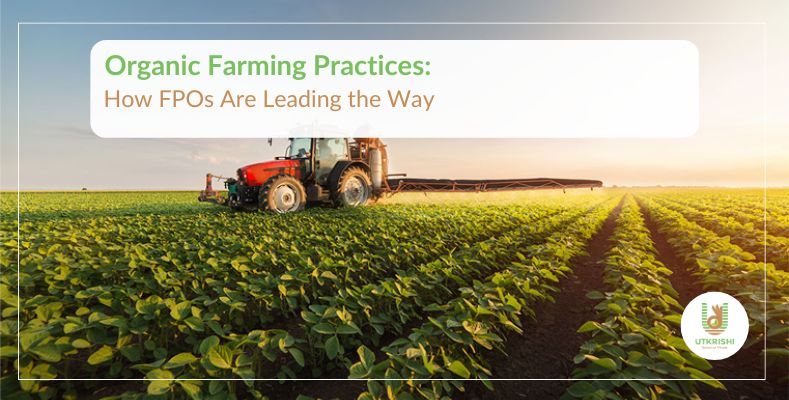Organic farming has been gaining momentum globally, with consumers becoming increasingly conscious of the food they consume and its impact on the environment. In India, this shift towards organic agriculture is not just a trend but a necessary step towards sustainable farming and food security. At the forefront of this movement are Farmer Producer Organizations (FPOs), which are playing a crucial role in promoting and adopting organic farming practices.
The Rise of Organic Farming in India
India, traditionally an agrarian economy, has seen a resurgence in organic farming in recent years. Organic farming eliminates the use of synthetic fertilizers, pesticides, and genetically modified organisms (GMOs), relying instead on natural processes like crop rotation, green manure, and biological pest control. The benefits are multifaceted, from improving soil health and biodiversity to reducing carbon footprints and providing safer, healthier food for consumers.
However, the transition to organic farming is not without its challenges. Farmers need to learn new techniques, manage risks associated with lower yields during the initial years, and navigate the complex certification process. This is where FPOs come into play, providing the necessary support and resources to make organic farming a viable and profitable venture for small and marginal farmers.
The Role of FPOs in Promoting Organic Farming
FPOs are collective organizations of farmers, often registered as cooperative societies or companies, that provide a platform for farmers to come together and pool their resources. These organizations empower farmers by giving them better access to markets, credit, technology, and information. When it comes to organic farming, FPOs are leading the charge in several key areas:
1. Knowledge Sharing and Training: FPOs conduct regular training sessions and workshops to educate farmers about organic farming practices. They provide information on soil health management, organic inputs, pest control, and crop diversification. This collective learning approach helps farmers overcome the knowledge gap and implement organic techniques effectively.
2. Access to Quality Inputs: One of the significant challenges in organic farming is accessing high-quality organic inputs like seeds, bio-fertilizers, and organic pesticides. FPOs help farmers procure these inputs at reasonable prices by buying in bulk and ensuring quality standards. This collective purchasing power reduces costs and ensures that farmers have access to the best resources available.
3. Certification and Market Linkages: Organic certification is essential for farmers to sell their produce as organic, both in domestic and international markets. The certification process can be cumbersome and expensive for individual farmers. FPOs assist in this process by organizing group certifications, which are more cost-effective. Moreover, FPOs help in establishing direct market linkages, enabling farmers to sell their organic produce at premium prices, thereby increasing their income.
4. Financial Support and Risk Mitigation: Transitioning to organic farming involves certain financial risks, especially during the initial years when yields might be lower. FPOs provide financial support to farmers through collective bargaining with financial institutions for better credit terms and insurance products. They also help in diversifying income sources by encouraging farmers to engage in allied activities like organic poultry or dairy farming.
5. Advocacy and Policy Support: FPOs play a vital role in advocating for policies that support organic farming. They work closely with government agencies to access subsidies, grants, and schemes designed to promote organic agriculture. FPOs also collaborate with NGOs and private sector players to create a conducive environment for organic farming practices to thrive.
Success Stories: FPOs Leading the Organic Movement
Across India, several FPOs have emerged as torchbearers of the organic farming movement. For instance, the Sahyadri Farms in Maharashtra has successfully integrated organic farming into its operations, benefiting thousands of smallholder farmers. Similarly, the Chetna Organic FPO in Odisha has been instrumental in promoting organic cotton farming, which has significantly improved the livelihoods of tribal farmers in the region.
These success stories highlight the potential of FPOs to transform the agricultural landscape in India. By embracing organic farming practices, FPOs are not only contributing to environmental sustainability but also ensuring better income and livelihoods for farmers.
Conclusion
As the demand for organic produce continues to grow, FPOs are set to play an even more critical role in shaping the future of agriculture in India. By providing the necessary support, resources, and market access, FPOs are empowering farmers to adopt organic farming practices and lead the way toward a more sustainable and prosperous agricultural sector. The success of organic farming in India hinges on the collective efforts of farmers, and FPOs are proving to be the driving force behind this transformative movement.


